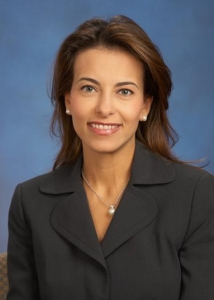 By Melissa J. Anderson (New York City)
By Melissa J. Anderson (New York City)
Linda Beaudoin, Head of Compensation for ING U.S. Investment Management (ING U.S. IM), spent the first 20 years of her career in finance. She started at Aetna working in management reporting, and then moved to the investment side supporting budgeting and analysis and product profitability. A few years after the firm was acquired by ING in 2000, she decided she was ready for a change.
“After twenty years of finance, I decided to take a risk and totally shift gears and move to HR. And it’s the best thing I could have done.” She started out as a generalist, but because of her finance background, Beaudoin quickly took on a comp focus. “That was my niche. I wish I had known that many years ago.”
“Never be afraid to take those risks – as you mature it’s something you become more comfortable doing,” she added.
One of Beaudoin’s proudest achievements came as the result of several acquisitions ING made in 2002 and 2003, including four separate asset management firms. “They had varied company philosophies and plans,” she explained, and the company had to figure out how to integrate them all. “And it was the first time I had worked intimately with senior management,” she recalled.
“I was new to HR and I realized I had a voice at the table. I realized I wasn’t going to get by on hard work alone. I started speaking up and being seen as a leader.”
She continued, “I wish I was more confident earlier in my career – that I had the confidence to speak up, offer my opinions, and ask questions I should have asked.”
“I always got kudos for the quality of my work, but not the recognition I should have gotten. If nobody knows you, it’s hard to progress in your career. My daughter is 27 and I give her that advice all the time. I’m trying to instill in her that guidance.”
 By Melissa J. Anderson (New York City)
By Melissa J. Anderson (New York City)







 By Melissa J. Anderson (New York City)
By Melissa J. Anderson (New York City) By Melissa J. Anderson (New York City)
By Melissa J. Anderson (New York City)